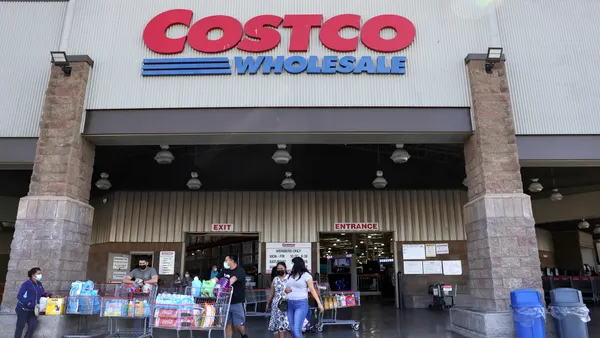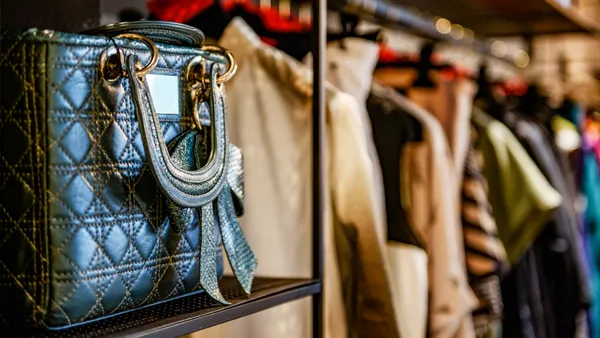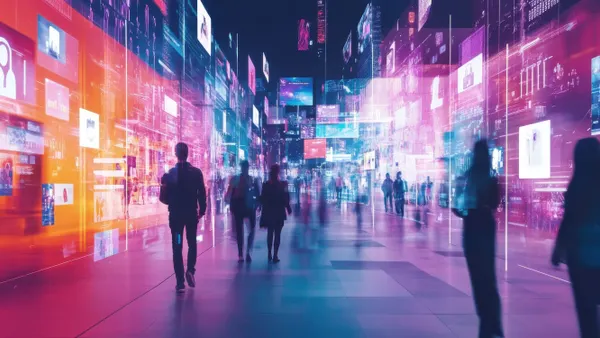Dive Brief:
- Alibaba collected $1 billion (6.81 billion yuan) worth of sales within the first five minutes of its massive annual Singles’ Day shopping event and about 15 hours in, sales reached $13.4 billion (91.2bn yuan), on pace to break last year's record $14.3 billion, buoyed by pervasive and star-studded promotions as well as cutting-edge technology.
- The international e-commerce giant debuted its Buy+ virtual reality shopping experience, which involves customers wearing VR headsets to view products from a 360-degree perspective on their PCs. Shoppers also are able to use the capability to get an enhanced view of products from Alibaba partners, including Macy's in New York.
- About 11,000 brands are reportedly selling products through Alibaba on Singles Day, and to further drive sales activity, Alibaba created a “Pokemon Go” style augmented reality game intended to drive online traffic to offline locations.
Dive Insight:
Bigger than Black Friday and Cyber Monday combined, Singles Day is in its seventh year. The concept was originally invented by college students in China as an alternative to Valentine's Day, and like everything good that happens in college, it was appropriated by the man (or in this case, the Ma — Alibaba chief Jack Ma) and turned into just another cog in the giant machine of commerce.
But seriously, the Chinese love Singles Day. if you want proof, Exhibit A is the almost incomprehensible notion that $1 billion was spent in the first five minutes of this year's event. And if that seems hard to believe, you may not be alone, as there have been questions from parties such as the Securities and Exchange Commission in the U.S., looking into concerns that information about gross merchandise sales from last year's event was inflated, that some third-party sellers using Alibaba's platform reported inaccurate sales numbers and that counterfeit items were sold during the event. Even Chinese regulators stiffened their policing of Singles Day for this year.
How will this regulatory attention affect sales? Perhaps not at all, if this fast start is anywhere near accurate. Alibaba certainly did its part this year by pumping up its promotional efforts. The Buy+ virtual reality experience is a big part of that promotional push. Using a cardboard VR headset, Alibaba has been able to go wide with this promotion, and is trying to give as many of its core Chinese customers as possible the experience of being jet-set shoppers visiting stores on foreign shores.
It's a different and more aggressive use of VR as marketing tool than we have seen from U.S. retailers that are experimenting with the technology in a marketing, such as Wayfair. If Alibaba can successfully integrate such VR experiences into its marketing to help drive sales for foreign partners like Macy's, it may not need to worry about some of the other concerns dogging Singles Day sales volumes, and may actually provide itself with a new engine to drive sales volumes.













